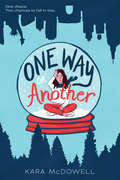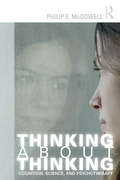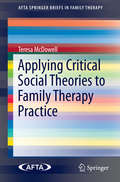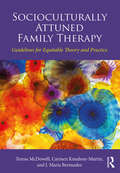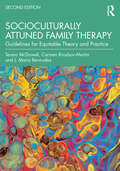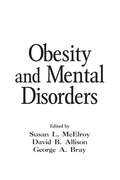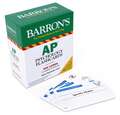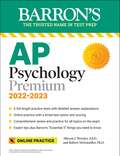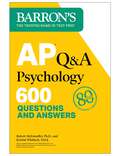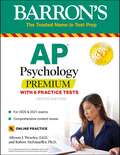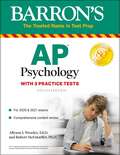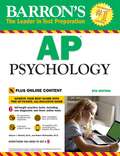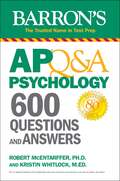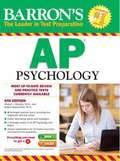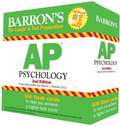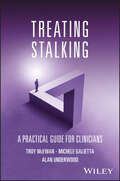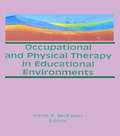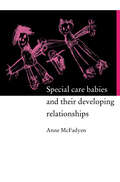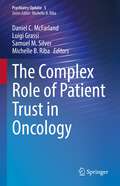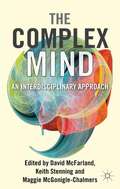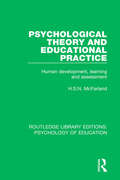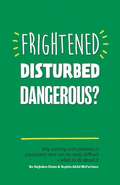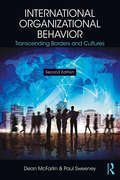- Table View
- List View
One Way or Another
by Kara McDowellThe average person makes 35,000 decisions every single day. That's about 34,999 too many for Paige Collins, who lives in debilitating fear of making the wrong choice. The simple act of picking an art elective is enough to send her into a spiral of what-ifs. What if she's destined to be a famous ceramicist but wastes her talent in drama club? What if there's a carbon monoxide leak in the ceramics studio and everyone drops dead? (Grim, but possible!)That's why when Paige is presented with two last-minute options for Christmas vacation, she's paralyzed by indecision. Should she go with her best friend (and longtime crush) Fitz to his family's romantic mountain cabin? Or should she accompany her mom to New York, a city Paige has spent her whole life dreaming about?Just when it seems like Paige will crack from the pressure of choosing, fate steps in -- in the form of a slippery grocery store floor -- and Paige's life splits into two very different parallel paths. One path leads to New York where Paige falls for the city . . . and the charms of her unexpected tour guide. The other leads to the mountains where Paige might finally get her chance with Fitz . . . until her anxiety threatens to ruin everything.However, before Paige gets her happy ending in either destiny, she'll have to face the truth about her struggle with anxiety -- and learn that you don't have to be "perfect" to deserve true love.
Thinking about Thinking: Cognition, Science, and Psychotherapy
by Philip E. McDowellThis book examines cognition with a broad and comprehensive approach. Drawing upon the work of many researchers, McDowell applies current scientific thinking to enhance the understanding of psychotherapy and other contemporary topics, including economics and healthcare. Through the use of practical examples, his analysis is accessible to a wide range of readers. In particular, clinicians, physicians, and mental health professionals will learn more about the thought processes through which they and their patients assess information.
Applying Critical Social Theories to Family Therapy Practice (AFTA SpringerBriefs in Family Therapy #0)
by Teresa McdowellThis volume applies critical social theories to family therapy practice, using sociopolitical context for a clearer focus on the power dynamics of couple and family relationships. Its decolonizing approach to therapy is shown countering the pervasive cultural themes that grant privilege to specific groups over others, feeding unequal and oppressive relationships that bring families and couples to treatment. Therapy is shown here as a layered and nuanced process, with practitioners developing an ethical human rights perspective toward their work as they aid clients in negotiating for greater justice and equity in their relationships. The book bridges theory and practice by giving readers these essential tools: Strategies for asking clients about social class. A framework for understanding gender issues within the larger patriarchy. Guidelines for relating concepts of race and class in therapy. Structure for creating the family cartography. Ways to utilize a queer perspective in therapy. Illustrative case examples throughout. Breaking new ground in family therapy, Applying Critical Social Theories to Family Therapy Practice challenges social workers, social work researchers, therapists, and psychologists to push beyond current ideas of social awareness and cultural competence toward truly liberatory client-centered practice. .
Socioculturally Attuned Family Therapy: Guidelines for Equitable Theory and Practice
by Teresa McDowell Carmen Knudson-Martin J. Maria BermudezSocioculturally Attuned Family Therapy addresses the need for socially responsible couple, marriage, and family therapy that infuses diversity, equity, and inclusion throughout theory and clinical practice. The text begins with a discussion of societal systems, diversity, and socially just practice. The authors then integrate principles of societal context, power, and equity into the core concepts of ten major family therapy models, paying close attention to the "how to’s" of change processes through a highly diverse range of case examples. The text concludes with descriptions of integrative, equity-based family therapy guidelines that clinicians can apply to their practice.
Socioculturally Attuned Family Therapy: Guidelines for Equitable Theory and Practice
by Teresa McDowell Carmen Knudson-Martin J. Maria BermudezSocioculturally Attuned Family Therapy, 2nd edition, is a fully updated and essential textbook that addresses the need for marriage and family therapists to provide socially responsible couple, marriage, and family therapy, infusing diversity, equity, and inclusion throughout theory and clinical practice. Written accessibly by leaders in the field, this new edition explores why sociocultural attunement and equity matter and provides students and clinicians with integrative, equity-based family therapy guidelines that clinicians can apply to their practice. The authors integrate principles of societal context, power, and equity into the core concepts of ten major family therapy models, such as structural family therapy, narrative family therapy, and Bowen family systems, with this new edition including a new chapter on socio-emotional relational therapy in practice. Paying close attention to the "how to’s" of changes processes, updates include the use of more diverse voices that describe the creative application of this framework, the use of reflective questions that can be used in class, and revisions to show how the authors have moved their thinking forward, such as third-order thinking vs change, ethics as infused in everyday practice from a third-order perspective, and the limits and applicability of SCARFT as a transtheoretical, transnational approach. Fitting COAMFT, COACRE, and CSWE requirements for social and cultural diversity, this new edition is revised to include current cultural and societal changes, such as the BLM movement. It is an essential textbook for students of marriage and family therapy and is important reading for family therapists, supervisors, counsellors, and social workers.
Obesity and Mental Disorders
by Susan L. McElroy David B. Allison George A. BrayCurrently, there are a limited amount of guidelines to help clinicians manage patients with obesity and comorbid mental disorders. This expertly written source fills the gap in the literature by providing a clear overview of obesity and its relationship to mental illness while reviewing the most recent methods to manage and control the condition wi
AP Psychology Flashcards, Fifth Edition: Up-to-Date Review (Barron's AP)
by Robert McEntarffer Ph.D.Be prepared for exam day with Barron&’s. Trusted content from AP experts!Barron&’s AP Psychology Flashcards includes 500 up-to-date content review cards. Written by Experienced Educators Learn from Barron&’s--all content is written and reviewed by AP experts Build your understanding with review tailored to the most recent examBe Confident on Exam DayStrengthen your knowledge with in-depth review covering all units on the AP Psychology examFind specific concepts quickly and easily with cards organized by topicCheck out Barron&’s AP Psychology Premium for even more review, full-length practice tests, and access to Barron&’s Online Learning Hub for a timed test option and automated scoring.
AP Psychology Flashcards (Barron's Test Prep)
by Robert McEntarffer Ph.D. Allyson J. Weseley Ed.D.Learn the most frequently tested individuals, terms, and concepts from the AP Psychology course framework anywhere, anytime with this digital format that enhances memorization! The College Board has announced that there are May 2021 test dates available from May 3-7 and May 10-14, 2021. Barron&’s AP Psychology Flashcards includes 500 digital flashcards that cover the most frequently tested individuals, terms, and concepts from the following nine units of the AP Psychology course framework: Scientific Foundations of PsychologyBiological Bases of BehaviorSensation and PerceptionLearningCognitive PsychologyDevelopmental PsychologyMotivation, Emotion, and PersonalityClinical PsychologySocial PsychologyDigital flashcard features:Access anywhere: study on all devices, including mobile--available online and offlineFlip functionality: a simple click flips cards from front to backRandom select: review cards in a random order rather than sequentially Looking for content review plus full-length practice tests? Check out Barron&’s AP Psychology Premium with 6 Practice Tests.
AP Psychology Premium, 2022-2023: 6 Practice Tests + Comprehensive Review + Online Practice (Barron's Test Prep)
by Robert McEntarffer Ph.D. Allyson J. Weseley Ed.D.Be prepared for exam day with Barron&’s. Trusted content from AP experts! Barron&’s AP Psychology Premium: 2022-2023 includes in-depth content review and online practice. It&’s the only book you&’ll need to be prepared for exam day.Written by Experienced Educators Learn from Barron&’s--all content is written and reviewed by AP expertsBuild your understanding with comprehensive review tailored to the most recent exam Get a leg up with tips, strategies, and study advice for exam day--it&’s like having a trusted tutor by your sideBe Confident on Exam DaySharpen your test-taking skills with 6 full-length practice tests--3 in the book, including a diagnostic test to target your studying, and 3 more onlineStrengthen your knowledge with in-depth review covering all 9 Units on the AP Psychology ExamReinforce your learning with practice questions at the end of each chapter Online PracticeContinue your practice with 3 full-length practice tests on Barron&’s Online Learning HubSimulate the exam experience with a timed test option Deepen your understanding with detailed answer explanations and expert adviceGain confidence with scoring to check your learning progress
AP Q&A Psychology, Second Edition: 600 Questions and Answers (Barron's AP)
by Robert McEntarffer Ph.D. Kristin Whitlock M.Ed.Be prepared for exam day with Barron&’s. Trusted content from AP experts!Barron&’s AP Q&A Psychology features 600 questions with answer explanations designed to sharpen your critical thinking skills, provide practice for all AP question types, and maximize your understanding of the concepts covered on the AP exam.Why Study with AP Q&A?Find questions and answers on research methods, sensation and perception, learning and cognition, developmental and abnormal psychology, treatment of psychological disorders, social psychology, and moreGet essential practice in all question types, including definition, scenario, stimulus, name recognition, and historical approaches and perspectivesMaximize your understanding of core content while honing your ability to answer test questions efficientlyFeatures comprehensive explanations that help you answer each question correctly Check out Barron&’s AP Psychology Premium for even more review, full-length practice tests, and access to Barron&’s Online Learning Hub for a timed test option and automated scoring.
AP Psychology Premium: With 6 Practice Tests (Barron's Test Prep)
by Robert McEntarffer Allyson J. Weseley Ed.D.Barron’s AP Psychology Premium is updated for the May 2020 exam and organized according to the new nine units of the AP Psychology course. Written by active AP Psychology teachers, this guide has the in-depth content review and practice you need to feel prepared for the exam. Packed with review of the course material, this premium edition features: Six full-length practice tests: three in the book and three online. A review of all AP test topics, including research methods, the biological basis of behavior, and treatment of disorders. An abnormal psychology chapter completely overhauled to reflect the latest changes to the DSM-5. Fifteen additional multiple-choice practice questions for each unit with explained answers. An analysis of the test's essay section with a sample essay.
AP Psychology: With 3 Practice Tests (Barron's Test Prep)
by Robert McEntarffer Allyson J. Weseley Ed.D. Ed.D.Barron&’s AP Psychology is updated for the May 2020 exam and organized according to the new nine units of the AP Psychology course. Written by active AP Psychology teachers, this guide has the in-depth content review and practice you need to feel prepared for the exam. Packed with review of the course material, this edition features:Three full-length practice tests in the book. A review of all AP test topics, including research methods, the biological basis of behavior, and treatment of disorders. An abnormal psychology chapter completely overhauled to reflect the latest changes to the DSM-5. Fifteen additional multiple-choice practice questions for each unit with explained answers. An analysis of the test's essay section with a sample essay.
Barron's AP Psychology, 8th edition With Bonus Online Tests: With Bonus Online Tests
by Robert McEntarffer Allyson J. Wesely, Ed.D.This updated guide offers content and test questions based on the most recent version of the AP Psychology course objectives. Our latest edition includes:Three full-length practice exams: one diagnostic test and two full-length practice testsComprehensive answer explanations for all questionsA review of all AP test topics, including research methods, the biological basis of behavior, and treatment of disordersAn abnormal psychology chapter completely overhauled to reflect the latest changes to the DSM-5Fifteen additional multiple-choice practice questions for each unit with explained answersAn analysis of the test's essay section with a sample essayBONUS ONLINE PRACTICE TESTS: Students who purchase this book will also get FREE access to three additional full-length online AP Psychology tests with all questions answered and explained. These online exams can be easily accessed by smartphone, tablet, or computer.
AP Q&A Psychology: 600 Questions and Answers (Barron's Test Prep)
by Robert McEntarffer Kristin Whitlock M.Ed.Ideal for students who want lots of practice, Barron's new AP Q&A Psychology features 600 questions with detailed answer explanations for all question types on the exam.With comprehensive explanations, students won't just learn why an answer is correct—they'll learn the rationale behind why each other answer choice is incorrect.Barron&’s AP Q&A guide is designed specifically to help students hone critical thinking skills, provide practice for all of the AP-style question types, and maximize understanding of concepts.Looking for content review in addition to practice? Try Barron's AP Psychology, which features detailed content review, expert tips, and full-length practice tests.
Barron's AP Psychology 6th Edition
by Robert Mcentarffer Allyson WeseleyThis updated manual offers detailed preparation for the AP Psychology exam and includes: Updated content and test questions based on the most recent version of the AP Psychology course objectives Three full-length exams--one diagnostic test and two full-length practice tests All test questions answered and explained A review of all AP test topics, including research methods, the biological basis of behavior, sensation and perception, states of consciousness, learning, cognition, personality, and treatment of disorders An abnormal psychology chapter completely overhauled to reflect the latest changes to the DSM Fifteen additional multiple-choice practice questions for each unit with explained answers An analysis of the test's essay section with a sample annotated essay The manual can be purchased alone or with an optional CD-ROM that presents two additional full-length practice tests with automatic scoring and fully explained answers. BONUS! An exclusive online exam included with the purchase of the book or the book with CD-ROM.
Barron's AP Psychology Flash Cards
by Robert Mcentarffer Allyson WeseleyThis set of 500 flash cards will help you understand and appropriately use psychological vocabulary terms frequently found in the multiple choice and free response sections of the AP Psychology exam. Each 4-1/2" x 2-3/4" card features: A frequently used psychology term on one side, with definitions, synonyms, explanations, and examples on the reverse side The context for the term, or the areas of psychology in which the term is most often used A punch-hole in one corner that accommodates an enclosed metal key-ring-style card holder, allowing students to arrange flash cards in any sequence Cards are organized by topic, including: History, Methods, Biology, Consciousness, Cognition, Motivation, and more. A great study aid to be used alone or in tandem with Barron's AP Psychology test prep manual.
Treating Stalking: A Practical Guide for Clinicians
by Troy McEwan Michele Galietta Alan UnderwoodTREATING STALKING Understand and address the drivers of stalking behaviour with this vital guide In the thirty-five years since stalking was identified as harmful behaviour, addressing its social effects has largely fallen to criminal justice systems. There is, however, significant evidence to suggest that pure criminalisation has limited meaningful impact. Mental health and other interventions for people who stalk may be the only serious path to relief for many stalking victims. Despite this, robust research into treatment for people who stalk remains rare, and relevant resources for treatment providers few. Treating Stalking is the first comprehensive guide for clinicians on this vital subject. It outlines 10 principles of effective intervention and gives detailed, practical, advice about delivering psychological and other treatment. It’s content draws on decades of research and clinical experience, but Treating Stalking also proposes a stalking research agenda to help ensure that future practice is evidence-based. Treating Stalking readers will also find: Case examples and worksheets from the authors’ psychological practice Detailed advice on assessment, risk assessment, case formulation, and ethical and legal issues Discussion of multidisciplinary and multiagency management to help stop stalking Treating Stalking is a must-have for any psychologist or other mental health professional looking to treat patients who stalk.
Occupational and Physical Therapy in Educational Environments
by Irene McewenOccupational and Physical Therapy in Educational Environments covers the major issues involved in providing lawful, team-oriented, and effective occupational and physical therapy services for students with disabilities in public schools. For those involved with students with disabilities, this book helps them make sound decisions about services that will make a meaningful difference in the lives of these children.Since the 1975 enactment of Public Law 94--142, which mandated that occupational and physical therapy be provided “as may be required by a handicapped child to benefit from special education,” this required link between therapy and education has continued to lead to confusion and controversy about which students should receive therapy in school and what types of services should be provided. The purpose of Occupational and Physical Therapy in Educational Environments is to clarify the major issues surrounding occupational and physical therapy in public schools, and to provide a framework for delivery of team- and family-oriented services that meet individual needs of students with disabilities.For those unsure of current regulations regarding handicapped students, or those who need clarification on the law, the book begins with a review of legislation and regulations. This begins to guide and shape schools’provision of therapy services. The following chapters assist occupational and physical therapists and important members of the educational teams of disabled students to make sound decisions about which students need school-based therapy services: Laws that Shape Therapy Services in Educational Environments: summarizes the major statutory law, federal regulations, and case law interpretation in which school-based practice is grounded. Pediatric Therapy in the 1990s: reviews contemporary theories of motor development, motor control, and motor learning that have had major impact on therapy for school-age children with disabilities. Related Services Decision-Making: describes a strong team approach to determining a student’s need for occupational and physical therapy services, which takes into account the unique characteristics of both the student and the educational team. Assessment and Intervention in School-Based Practice: describes an approach to assessment and intervention in schools that clearly illustrates a relationship between therapy and educational programs that result in meaningful outcomes for students. Challenges of Interagency Collaboration: reports on a qualitative study that points out that schools are not the only settings in which many students with disabilities receive services, so coordination between various agencies is essential to avoid gaps, overlaps, and cross purposes.Those who can benefit from Occupational and Physical Therapy in Educational Environments include occupational and physical therapists who work in public schools, school administrators, teachers, and even parents of disabled children.
Special Care Babies and their Developing Relationships
by Dr Anne McfadyenSpecial care babies are at the centre of a complex system of relationships involving both family members and professionals. Prematurity, disability and life-threatening situations create a crisis which is likely to have a different meaning for each participant. Each baby's developing relationships will both influence and be influenced by relationships within the hospital and the family system. Special Care Babies and their Developing Relationships puts professionals in touch with how babies, their parents and the staff who care for them actually experience neonatal care. The book explores institutional, cultural and family beliefs about prematurity and considers the differences in beliefs and in needs of parents and staff. Anne McFadyen argues that to support the key mother-child relationship, these differences must be acknowledged, as they are at the heart of the relationship between two crucial systems which have the power to influence the baby's survival and the rest of his or her life.
The Complex Role of Patient Trust in Oncology (Psychiatry Update #5)
by Daniel C. McFarland Luigi Grassi Samuel M. Silver Michelle B. RibaThis book presents a comprehensive portrait of trust in medicine and oncology. Trust is vital to medical care. It is linked to treatment recommendation adherence, continuity of care, and even treatment efficacy under certain scenarios, and is distinct from other commonly measured patient-reported outcomes that are used to drive medical practice, such as patient satisfaction. Cancer care highlights many of the issues with trust that all clinicians confront and brings to light the interplay of technology, rapidly advancing treatments, and readily available information consumed by patients and families that may complicate clinician-patient communication.Each chapter highlights a different aspect of trust in the medical setting, many of which are specific to oncology. For example, trust is fundamental to the first encounter with an oncologist. The anatomy of that encounter is explored. The elements of trust are investigated, from the institutional or fiduciary perspective to the nuances of the personal and individual encounters with patients. Several key factors are relevant to trust within these encounters, such as the patient’s background, attachment style, and perception of ethically responsible commitment. Further chapters cover topics like the proliferation of false information, health inequities, and patient-centered care.The Complex Role of Patient Trust in Oncology will be of great interest to oncologists, psychiatrists, internists, and any healthcare professional interested in the role of trust in patient care.
The Biological Bases of Economic Behaviour: A Concise Introduction
by David McFarlandHuman genetics has changed little over the past 20,000 years, but human economic behaviour has changed a lot. These changes are probably due to human cultural evolution. But studies of human hunter-gatherers, and of a variety of other animal species, show that their micro-economic behaviour is much the same. Whereas the standard economic analysis focuses on money, the biological approach brings time and energy into the analysis. Moreover, humans and other animals tested under laboratory conditions do not exhibit the complexity of the results of field studies. In other words, results obtained in the real world are not the same as those obtained in the laboratory. <P><P> The Biological Bases of Economic Behaviour invites readers to approach micro-economics from a biological viewpoint, in a clear and introductory manner.
The Complex Mind
by David Mcfarland Keith Stenning Maggie Mcgonigle-ChalmersCombining the study of animal minds, artificial minds, and human evolution, this book examine the advances made by comparative psychologists in explaining the intelligent behaviour of primates,the design of artificial autonomous systems and the cognitive products of language evolution.
Psychological Theory and Educational Practice: Human Development, Learning and Assessment (Routledge Library Editions: Psychology of Education)
by H.S.N. McFarlandOriginally published in 1971, this book was a critical introduction to the psychology of human development, learning and assessment. It was written with special attention to the needs of students of education and teachers, keeping in view the practical implications of psychological evidence. The author’s purpose was to provide a clear and straightforward account of these matters, while at the same time promoting a thoughtful and critical response. If the book is to be called a textbook, it is so in this best sense.
Frightened, Disturbed, Dangerous?: Why working with patients in psychiatric care can be really difficult, and what to do about it
by Sophie Abild Mcfarlane Bo Hejlskov ElvénPatients in psychiatric care can behave in ways that can be alarming for staff, and difficult to respond to. The authors of this practical and imaginative book explain why patients may behave in these ways, and offer a toolkit of ways to respond effectively and kindly. With many everyday examples of how to keep the space positive and safe, and patients calm, this book could transform your working life.
International Organizational Behavior: Transcending Borders and Cultures
by Dean McFarlin Paul SweeneyThis book focuses on understanding and managing organizational behavior in an international context, considering the conceptual framework of culture and offering practical advice for navigating cultures in the workplace. Readers will gain new tools to interpret behavior, helping them to manage international challenges effectively. The authors outline the critical management and adaptation skills necessary to develop within a globalized organization, teaching the reader how to recruit, coordinate, and evaluate an international team. Updated "Culture Clash" and "Global Innovations" boxes provide important insights into identifying a core set of values to "customize" management techniques across cultures, focusing particularly on growing countries like India and China. The new edition features a more streamlined chapter structure, updated discussion questions, and new end-of-chapter cases with self-scoring quizzes for further development. International Organizational Behavior will prove a valuable resource for any student of organizational behavior, international management, and international business. A companion website provides additional support for instructors, featuring an instructor’s manual, test bank, and PowerPoint slides.
